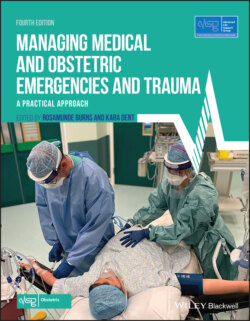Читать книгу Managing Medical and Obstetric Emergencies and Trauma - Группа авторов - Страница 9
Dedication
ОглавлениеRichard Johanson 1957–2002
This book is dedicated to the memory of Richard Johanson, who died on 20 February 2002, before he could see this work come to fruition.
‘It’s never too late to be what you might have been’
George Eliot
This quotation had meaning for Richard – it was posted on his study wall.
Richard had two major aims in obstetrics – to avoid unnecessary intervention but to apply urgent skilled intervention when needed, and he had a gift for both. He wanted interventions to be based on the best evidence available and for there to be good audit to check that the correct processes were being followed. His experience in Stoke and overseas had given him the skills to achieve these aims. His drive was for simple emergency protocols to save the lives of mothers and babies. This led to his leadership in practice and education in labour ward emergencies.
Initially he organised structured training for life‐threatening obstetric emergencies in the West Midlands and in 1997 he and Charles Cox were the inspiration for developing the ‘Managing Obstetric Emergencies and Trauma’ (MOET) course, aimed at senior obstetricians and anaesthetists. A modified MOET course was taken overseas where he introduced ideas and protocols with tact and efficiency.
He worked closely with midwives in research and in the implementation of labour ward guidelines. He organised national meetings dealing with childbirth and worked with the National Childbirth Trust and Baby Lifeline, again to promote safer childbirth without overmedicalisation. The foundation of his research charity ‘Childbirth without Fear’ aims to continue to improve the care of women during childbirth.
Richard will be remembered by many, particularly by his trainees. His boundless enthusiasm and generosity with his time, ideas and academic work meant that there was a queue to work with him. The publication problem would be solved and the trainee would have a nationally respected mentor who continued to take an interest in their career.
Perhaps instinctively feeling that time was precious led him to achieve so much so quickly. Much of it was due to the intellectual sparking between him and his anaesthetist wife, Charlotte. They demonstrated the teamwork that is part of the philosophy of MOET.
‘To see a human being reveal really exceptional qualities one must be able to observe his activities over many years. If these activities are completely unselfish; if the idea motivating them is unique in its magnanimity; if it is quite certain that they have never looked for any reward; and if in addition they have left visible traces on the world – then one may say, without fear of error, that one is in the presence of an unforgettable character.’
Jean Giono, from a short story called The Man Who Planted Trees
